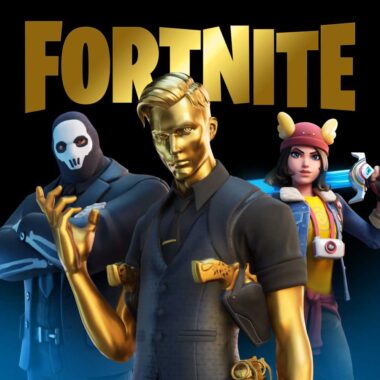Fortnite and the Evolution of Game NFTs
Introduction
Fortnite, developed by Epic Games, is more than just a game; it’s a global phenomenon. Since its release in 2017, Fortnite has revolutionized the gaming industry with its dynamic gameplay, engaging social experiences, and innovative monetization strategies. As the game industry continues to evolve, a new trend has emerged: Game NFTs (Non-Fungible Tokens). This article delves into the history of Fortnite, its impact on gaming culture, and how the advent of Game NFTs could shape the future of gaming.
The Rise of Fortnite
The Birth of a Phenomenon
Fortnite was released by Epic Games in July 2017. Originally, it featured a cooperative tower defense gameplay, known as Fortnite: Save the World. However, the game’s breakout success came with the introduction of Fortnite Battle Royale in September 2017. This mode pits 100 players against each other in a last-man-standing battle, quickly becoming a cultural and gaming juggernaut.
Cultural Impact and Community
Fortnite’s success can be attributed to its dynamic gameplay and frequent updates, which keep the community engaged. Beyond the game mechanics, Fortnite’s vibrant, ever-evolving world and its ability to integrate popular culture—featuring collaborations with celebrities, movies, and even in-game concerts—have created a global community of players and fans.
Monetization and In-Game Economy
A key factor in Fortnite’s sustained success is its free-to-play model, supported by microtransactions. Players can purchase V-Bucks, the in-game currency, to buy cosmetic items such as skins, emotes, and battle passes. This model has generated billions in revenue, demonstrating the potential of in-game economies.
Understanding Game NFTs
What are NFTs?
Non-Fungible Tokens (NFTs) are unique digital assets verified using blockchain technology. Unlike cryptocurrencies like Bitcoin, NFTs are indivisible and unique, making them perfect for representing ownership of digital items such as art, music, and in-game assets.
NFTs in Gaming
Game NFTs represent a paradigm shift in the gaming industry. They allow players to truly own their in-game assets, which can be bought, sold, or traded outside the game’s ecosystem. This concept can fundamentally change how players interact with games and their economies.
Benefits of Game NFTs
Game NFTs offer several benefits:
- True Ownership: Players have verifiable ownership of their in-game items.
- Interoperability: Assets can potentially be used across different games.
- Economic Opportunities: Players can earn real money by trading NFTs.
Fortnite and Game NFTs: A Potential Integration
Current Trends in Fortnite
Fortnite has already experimented with blockchain technology through collaborations and limited-edition digital items. While these are not full-fledged NFTs, they hint at the potential for future integration.
Hypothetical NFT Integration
If Fortnite were to fully integrate NFTs, it could revolutionize its in-game economy. Players could own skins, weapons, and other items as NFTs, allowing them to trade these items on secondary markets. This could enhance player engagement and introduce new revenue streams.
Challenges and Considerations
Integrating NFTs into Fortnite would not be without challenges. These include:
- Scalability: Ensuring the blockchain can handle millions of transactions.
- Regulation: Navigating legal implications around digital ownership and trading.
- Community Response: Balancing player expectations and the core gameplay experience.
The Broader Impact on the Gaming Industry
Industry Adoption
Other major game developers are exploring NFTs, recognizing their potential to enhance player engagement and create new economic models. Games like Axie Infinity and The Sandbox have already demonstrated successful NFT integration.
Economic Implications
The introduction of NFTs in gaming could create new job opportunities and revenue streams. Players could earn money by playing games, developers could earn royalties on secondary sales, and new marketplaces could emerge.
Ethical and Environmental Concerns
The gaming industry must address the ethical and environmental concerns associated with NFTs, such as:
- Environmental Impact: The energy consumption of blockchain technology.
- Speculation and Fraud: Protecting players from scams and ensuring fair trading practices.
The Future of Game Development
Innovation in Game Design
NFTs could lead to more innovative game designs, with developers creating unique, tradable assets. This could foster a more creative and dynamic gaming environment.
Player Empowerment
By giving players true ownership of their in-game assets, NFTs could empower players and create a more invested and loyal community. This shift could redefine player-developer relationships.
Cross-Platform Possibilities
NFTs could enable cross-platform asset interoperability, allowing players to use their items across different games and platforms. This could create a more seamless and integrated gaming experience.
Fortnite’s Legacy and Future Prospects
Continued Evolution
Fortnite’s ability to adapt and innovate has been key to its success. The potential integration of NFTs represents the next step in this evolution, keeping Fortnite at the forefront of the gaming industry.
Community Engagement
Epic Games has consistently prioritized community engagement, and the integration of NFTs could further enhance this relationship. By involving players in the economy and giving them ownership, Fortnite could strengthen its community even more.
Long-Term Vision
Looking ahead, Fortnite’s potential NFT integration aligns with a broader vision of the metaverse—a fully immersive digital world where players can interact, trade, and create. This vision could redefine the future of gaming and digital interaction.
Conclusion
Fortnite’s journey from a cooperative tower defense game to a global cultural phenomenon is a testament to its innovative spirit and community engagement. As the gaming industry stands on the brink of a new era with the advent of Game NFTs, Fortnite is well-positioned to lead the charge. The integration of NFTs could redefine player ownership, create new economic opportunities, and foster a more dynamic and interconnected gaming ecosystem. While challenges remain, the potential benefits make this an exciting prospect for the future of gaming.











